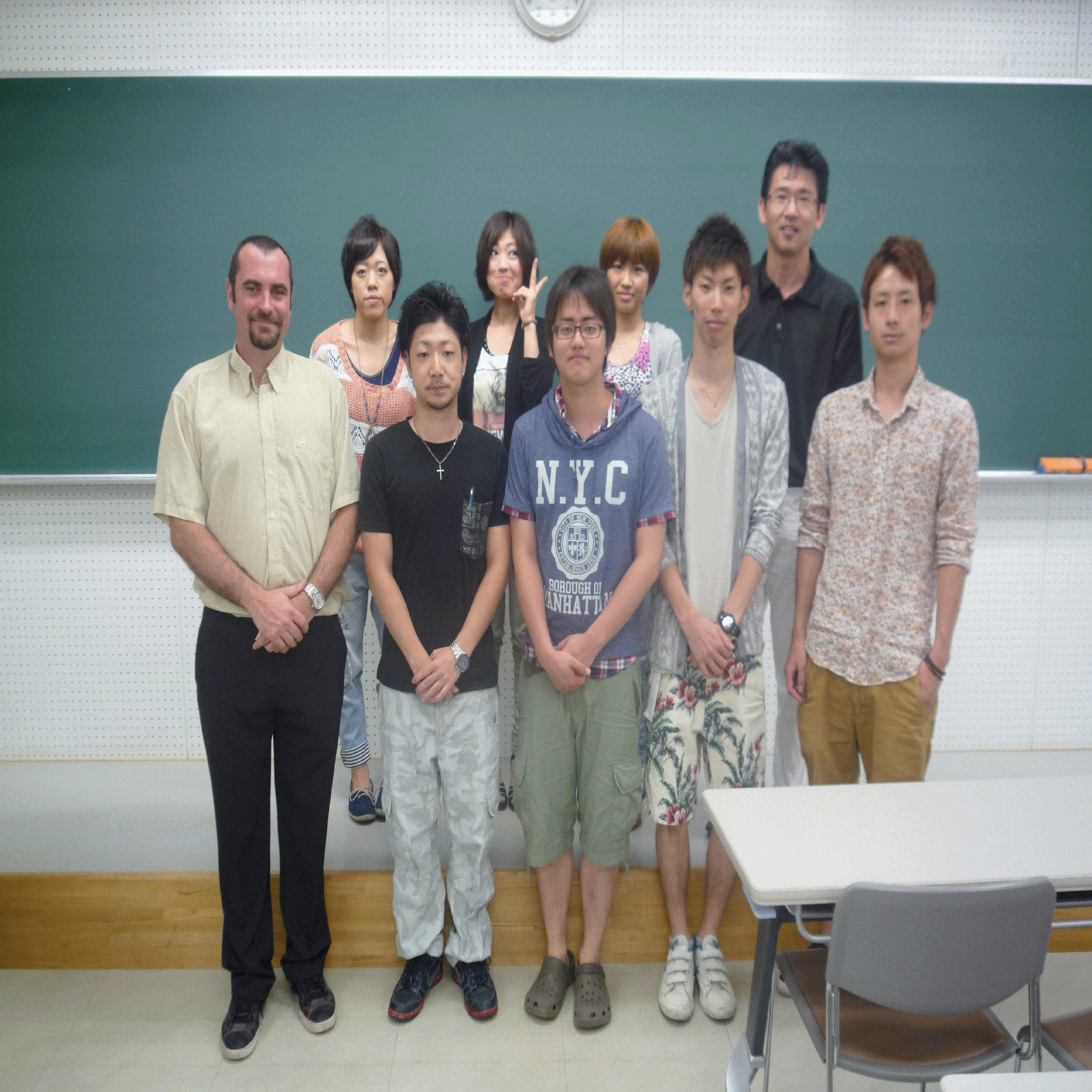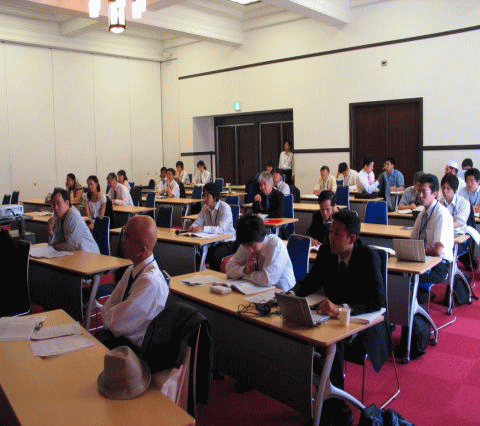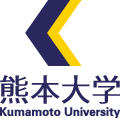- HOME
- Admission
Admission
Dear Students
Based on soil mechanics, geotechnical engineering, and fluid mechanics, the Mukunoki’s Laboratory deals with geotechnical contamination problems, research aimed at developing technologies for fossil fuel extraction, and various issues related to impervious barriers at waste disposal sites. In addition to the above, we also conduct joint research with overseas universities, companies, and other universities. Please refer to the article below for more information on what you can learn in the Mukunoki’s Laboratory. If you have any research you would like to do, please feel free to bring it to our attention and we will be happy to discuss it with you. The current research topics are as follows, which are being continued by master students.
・Elucidation of the generation mechanism of wormholes to improve oil recovery efficiency in oil sands
・Development of a method for remediation of oil-contaminated ground using ultrasonic energy
・Elucidation of two-phase flow phenomena in ground using the lattice Boltzmann method
Basic research that we would like to undertake in the future includes
Development of an image analysis method to evaluate the skeletal structure of particle materials based on pore structure models.
Development of a mechanical model based on particle orientation
I would also like to focus on research that is slightly more geotechnical in nature.
If possible, I would like you to come to our laboratory with a clear idea of what you want to do. Even if it is not clear, I would like them to make an effort in advance to make it clear. Up to now, you have been taking assigned lectures and earning credits, but once you are assigned to a laboratory, you will be required to have the skills to construct your own research. If you do not think and act on your own, nothing will progress. Research is about using what you have learned so far to clarify what is not yet understood. Research cannot be called research if it is just an imitation of what someone else has done. In this sense, I am convinced that your life in the laboratory will enhance your independence.
I hope that students who wish to study in Mukunoki’s Laboratory will graduate from Kumamoto University with sufficient basic skills for working adults, and even go on to graduate school. I look forward to meeting you soon.
Basic concept for learning in Mukunoki’s lab.
Dear 1st-3rd year students

If you belong to Mukunoki Lab, you will be good at the following things.
- Become good at giving presentations (speaking)
- You will like soil experiments and soil mechanics
- You will want to go abroad
- You will be good at arranging your work.
- You will be able to write well an outline at the national conference level
- You will be able to finish papers at the international conference level
People who dislike soil mechanics are welcome to join us. Students in our current laboratory were all people who disliked soil mechanics in the beginning. However, through the preparation of student experiments, 4th year seminars, and graduation theses, they have all grown to love soil mechanics by the time they graduate. Those who want to become general contractors or consultants are welcome to join us because of soil mechanics, and those who are not good at soil mechanics are welcome to join us.
When you join the Mukunoki Laboratory, you will also have this feeling.
- You will be scolded seriously, and you will be depressed.
- Often, you are made to copy materials.
- You will often be used for “crisping”.
In Mukunoki Lab, the supervisor is sometimes a devil sergeant, so if you choose our lab just because it looks like a fun atmosphere, you will regret it later. In Mukunoki Lab, you will learn well, drink well, eat well, talk well, and be patient.
For those who want to learn from graduate school
- The abilities you will cultivate during your time in graduate school are
To find a problem and find a way to solve it by oneself, and
The ability to find a way to find a solution to a problem, and to accurately communicate the results to others.
The ability to set up or raise problems on one’s own.
The ability to plan experiments to solve the problems you set (or propose) by yourself
The ability to formulate a hypothesis based on the phenomena and trends read from experimental results.
Ability to plan and carry out experiments to prove the hypothesis
Ability to develop logic, express it in writing, and make presentations. - Specific methods for cultivating the above abilities
- Conference presentations
- Oral presentations at research meetings (oral presentations are better than poster presentations)
- Writing and submission to academic journals (including English papers, of course)
These are the goals of the program, and you will learn by yourself through all the experiences you have. In other words, you will not just be taught. If you are outside of the university and find me at an academic conference (presenting at a session, asking questions, etc.), please feel free to catch me. If possible, please contact me by e-mail in advance so that we can have enough time to talk.
For those who are considering a doctoral program for working adults
If you are interested, please contact Mr. Mukunoki by e-mail.
(Replace ” * ” with “kumamoto-u.ac.jp” when sending.)
Once you join our lab…

- Learn to take responsibility for your own experimental data.
- Learn “the difficulty of having a third party, including those in other fields, understand your work.
- Learn to “formulate a hypothesis from experimental data, plan and conduct an experiment to prove the hypothesis.
- Learn “to learn by oneself.
Preparation for graduation thesis and master’s thesis research
| Experiments must be reproducible | Reproducibility is the key to experimentation. However, it is not so easy to obtain reproducible experimental data. |
|---|---|
| Something starts when you get the experimental data. | Often, we are happy to bring only primary data, but actually, the real fun starts when we look at the experimental data compiled in tables and graphs! |
| Only God knows what the true solution is? | When conducting experiments, we frequently run into walls. There is no “textbook” for overcoming these obstacles, and the only way to deal with them is to think for yourself and consult with your colleagues and seniors. Even if you experimentally reproduce what you already know, it is still learning. Therefore, simply operating equipment does not mean that you are conducting research, nor is the “ability to operate equipment” a “research ability” (we must not misunderstand this point). Research is an act of working diligently to get closer to an answer that has not been prepared. |
| Responsibilities and Essential Skills of Researchers |
All of these cannot be conveyed to others unless they are expressed in words. If you don’t work hard to develop your text and prepare your presentation carefully, others will not be able to understand what you have worked so hard to achieve. It is not a simple task to write down exactly how to do an experiment so that others can follow up on the experiment you have done. But it is easy to understand if you try. You may be reminded that even though you are Japanese, you cannot speak Japanese. Why are world-renowned researchers so clear in their presentations? It is because they have practiced so much and done tremendous careful checking by several people. |
| Reading information accurately | You can get literature and reference books at the library, and nowadays you can get various documents on the Internet. However, unless you can “read” them accurately, you have not accessed the information. How many people mistakenly think that they have done a literature search by making copies and collecting references! Moreover, the information they want is not always written in Japanese. It is no exaggeration to say that whether or not you have properly studied the research theme in your thesis or dissertation is determined by the content of the existing research part. |
| Originality of research (Sales Point) |
In most cases, “research” is based on “existing research. The significance (novelty or originality) of one’s research becomes clear only when it is compared with past research. In other words, if you do not distinguish between needs and seeds, you may only pursue seeds, and if there are no needs, the value of that research may be reduced by half. But of course, even if there are no needs now, it is also necessary to consider whether they are needs that can be considered in the future. With these points in mind, we need to ask ourselves the following questions
What is new, what has been clarified for the first time, and what has been accomplished for the first time? |
| Research is not something that can be done alone. | Life in a laboratory is a group life, and if you do not follow the rules, you may cause a lot of trouble for your colleagues. Therefore, in the Mukunoki Laboratory, students are required to memorize the five rules of practice, and those who do not follow the rules are not allowed to do research. |
To all of you who are thinking about whether or not you would like to be a part of the Mukunoki’s lab..
Mukunoki’s lab is usually very strict in its “discipline” of its students (taking into account, of course, that they will be working in Japan), with an eye to their ability to work internationally after graduation and in graduate school. So some may feel “annoyed,” as they say nowadays. However, by the time they graduate, the graduates seem to be satisfied with themselves, having brought out the potential that had been dormant within them to their own surprise. To themselves and to the students themselves, “Strike while the iron is hot! And be true gold! to himself and to the students, we are running the laboratory with the aim of nurturing human resources who can be independent and who will not lose to themselves even if they cannot beat others.
Since we have many international students, communication in the laboratory is basically in English. If you are interested in acquiring such skills, this may be the right place for you. Also, those who have not yet decided on a research theme (those who do not yet know what they want to do) should have no problem. In other words, as long as you are willing to make an effort to find out what you want to do, I don’t think there is any problem at all. Rather, I think it is more important to take your time and work hard to build a foundation of mechanics and logical thinking, even if you do not know what it will be useful for now, so if you come to our laboratory, I would like to study with you carefully.
